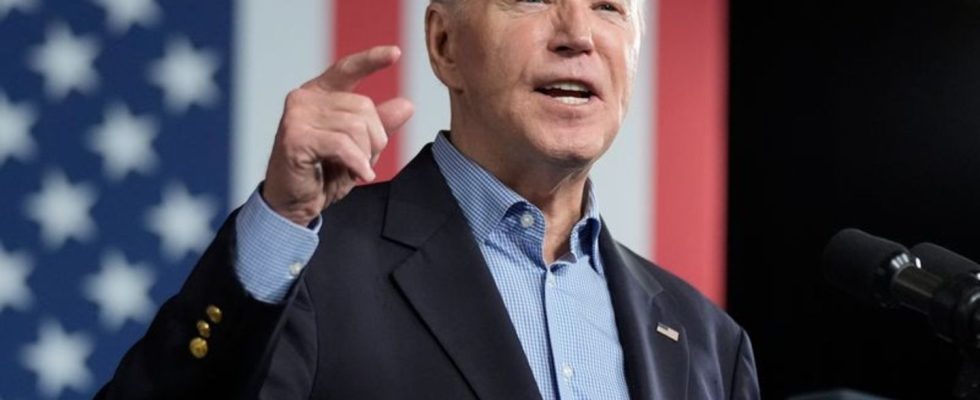US household
Biden is pushing for higher taxes on the rich and corporations
US President Joe Biden wants to increase taxes. photo
© Manuel Balce Ceneta/AP/dpa
Biden already explained what he envisions for the US budget in his state of the nation speech – but what stands between plan and implementation is an uncooperative US Congress and an election.
Biden had already announced his budget plans during his State of the Union address on Thursday (local time). However, it is considered impossible that the Democrat’s draft will be implemented in this form in the foreseeable future.
Congress has the power
The publication of the draft budget is just a beginning, as the power to approve the budget lies with the US Congress. There, Biden’s Democrats have a narrow majority in the Senate, but the Republicans have a thin majority in the House of Representatives. For the current budget year until the end of September, Biden’s plans have not been nearly implemented – a required minimum tax of 25 percent for the super-rich has already failed once.
Recently there were only short-term solutions in Congress. There is still no complete agreement for this financial year. After agreement was reached last week on financing part of government business until the new fiscal year, the deadline for another legislative package expires on March 22nd. This means that the outstanding financing of various federal authorities for this financial year must be clarified. If no agreement is reached, there is a risk of a so-called shutdown, i.e. a standstill of affected government business. However, this political wrangling over the budget is not unusual in the USA.
Transitional budget likely
It happens regularly that Congress first makes do with passing an interim budget and then a few months later argues again about the financing of government operations. Agreements are often only reached at the very last moment. It can be assumed that this will also be the case for the coming fiscal year. Shortly before Biden’s State of the Union speech, the Republican-led Budget Committee in the House of Representatives already passed a counterproposal for the coming year.
In order to implement his plans, Biden would first have to win the presidential election. The majority in Congress would also have to shift in favor of his Democratic Party. In November, the US will not only vote on who will move into the White House. It’s also about all the seats in the House of Representatives and a third of the seats in the Senate.
After former President Donald Trump beat out all serious competitors in the Republican primaries, nothing stands in the way of a repeat of the 2020 duel: Biden against Trump. Surveys suggest it will be a neck-and-neck race.

